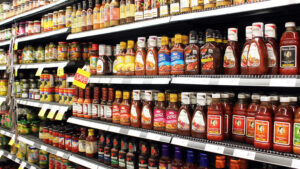
Inflation is nothing new to consumers, but it has worsened over the past year due to the COVID-19 pandemic.
Widespread prices have increased to their highest point in October at 6.2%, the highest it has been since December 1990, according to the Associated Press. This includes consumer goods such as petroleum gas, groceries, household rent, and even healthcare. Tallahassee residents and students notice the price increases in gas and food the most.
Walking into any supermarket today, one might realize the price of a can of tuna, which was about $0.99 cents as recently as 2020, is an average of $2.29 now. A carton of regular milk is now $4.28 on average, compared to $3.38 in October 2020.
As the Thanksgiving holiday approaches, the cost of turkeys and meat have also increased to their highest; a 15-pound turkey costs about $50 compared to $27 in 2020. Meat has also skyrocketed 22% according to The Wall Street Journal.
FAMU student Chloe Moody says she feels forced to reduce the number of trips she takes to go grocery shopping. “It’s inconvenient because there are a lot of people who go shopping for the same things, and it can be frustrating when it’s either not there on the shelf or more expensive,” she said.
The cause of inflation can come from different factors, but because of the pandemic, production costs have risen as consumers face more shortages. Shortages can be detrimental to consumers because of the importance of products and high demand.
The higher the demand, the more it will cost to manufacture. This gives the manufacture the ability to increase the price of that product as consumers are willing to pay more.
Companies like Mondelez International, which makes snacks like Oreo cookies, Ritz crackers and Easy Mac, announced that its products will increase by 7% by 2022 to combat rising inflation costs. Mondelez CEO Dirk Van de Put says the prices will increase due to higher commodity prices and transportation shortages.
“Keeping retailers well-stocked with product has been difficult.” He added that shelf inventory is “nowhere near where we would like to be.”
Although food shortages and inflation issues can be global, it is prominent in the United States. Tallahassee resident Shakera Gillings says she’s concerned that there may not be a solution. “It’s hard having to grocery shop, especially with kids. Going into the year, I don’t think there will any positive changes; it will probably become worse before it gets any better,” she said.
Petroleum gas has skyrocketed as global energy worsens, with consumers seeing the highest rates in years. The cost of crude oil is now 45 percent higher than what it was in June 2019, and there’s also no sign of it decreasing anytime soon.
Student Mitchell Stockwell says he doesn’t understand why prices continue to rise. “I get how the market is or the ways they need to maneuver to work, but I don’t understand why prices are so high and why they continue to do so. One week it’s affordable, and one hour later, it goes up 20 cents. That is unfair,” he said.
There are ways to save a few extra cents when buying gas, like signing up for a gas rewards program with a gas station, using apps to find inexpensive gas locally, or paying cash instead of a credit card.